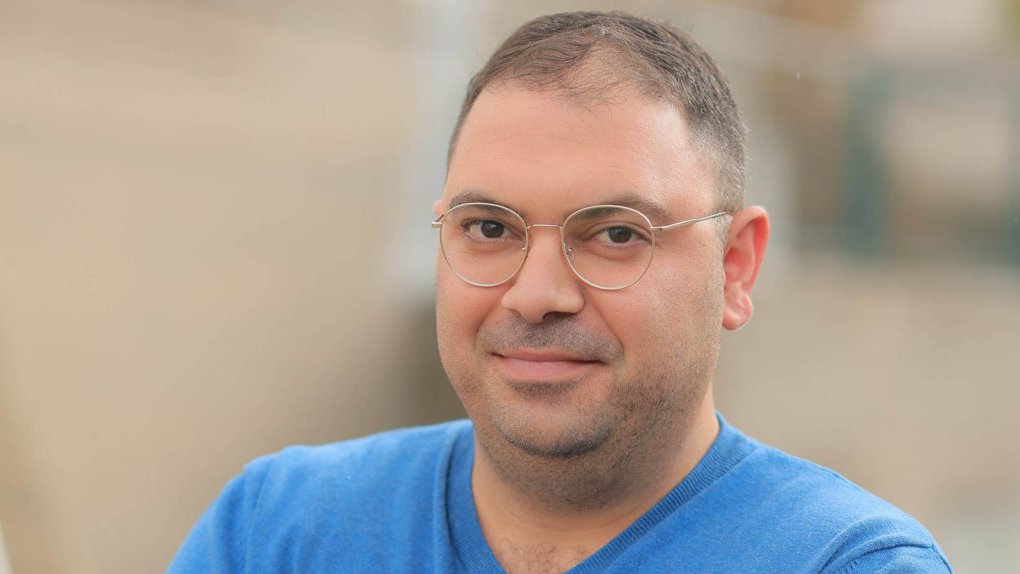An Interview with an SFP Graduate: Ameer Bisharat
Ameer Bisharat is a graduate of 2 courses of the School for Peace: agents of change course for future politicians and agents of change course for lawyers. He is also a member of the Palestinian-Jewish planners’ forum which is a collaboration of the School for Peace with the Arab Association for Alternative Planning. Recently, and as part of the planners’ forum project, Ameer was elected to the Israel Planners Association. To sum this fruitful year we decided to interview him.
Tell us about yourself.
“My name is Ameer Bisharat, and I am 34. I am originally from Jaffa of Nazareth, but today I live in Jaffa. I am a certified lawyer and entrepreneur focused on municipal and business management. I serve as a senior consultant and economic advisor for the National Committee of Arab Local Councils in Israel and am the director of the Rahat Industrial Zone Administration. I am responsible for the National Committee’s activities in employment and adequate representation, hi-tech, industrial areas, transportation and infrastructure, local authorities, and housing. I partner with civil society organizations as an advocate in negotiations with various government ministries. I also act as Arab society representative in the implementation team for the Housing Chapter in Government Resolution 550, and as a board member of the Israel Planners Association and the Heschel Center for Sustainability.
I hold an LL. B and master’s degree in administration and public policy from the University of Haifa; a master’s degree in law specializing in human rights from the College of Management; and a master’s degree in geography, urban and regional planning from the Hebrew University of Jerusalem.
What sparked your political activity?
“I can’t recall a certain event. I have always been quite politically and socially minded. For example, I was always aware of the fact that my family originally hailed from Ma’alul, until they were deported. I started participating in Hadash (the Democratic Front for Peace and Equality) activities at a young age, as well as those of the Israeli Communist Youth Alliance. In tenth grade, I was head of the student body, and during my bachelor’s degree I was on the student committee. I was always active in some kind of social activity. In fact, things didn’t always go smoothly: I was temporarily expelled from my bachelor’s program for organizing a peaceful demonstration to push Israel to acknowledge Palestine as a UN observer.”
What brought you to the SFP? What courses did you participate in? And how did they affect you?
“I first came to the SFP in 2017 as a participant in the Agents of Change course for future politicians. The course was made up of Jewish, Palestinians in Israel, and Palestinians of the West Bank. We were tasked with brokering a peace accord between Jews and Palestinians, for which we formed committees to discuss the most pressing matters that need to be settled if this is to ever occur.
The program had a great impact on me. In my experience with the communist youth association, I was familiar with the Jewish leftist movement, but little did I know that I was meeting only the most committed and radical leftists. At the SFP, I came face to face with the full spectrum of leftist positions, including more nationalistic and moderate ones. It was difficult for me to accept what seemed to me like “pseudo-leftist” positions, as well as the process we were all going through trying to resolve our disagreements. That’s when I learned what a crucial role Palestinians in Israel have in this region: not only as mediators, but as an ideological backbone for the two future states of the region.
Then, I participated in the agents of change course for lawyers, which was no less impactful, but totally different. This course had a clear professional orientation. Its main contribution was that it helped me understand that people involved in the field of human rights tend to settle for little achievements as a process of a larger struggle: that the former pave the way for the latter. I realized that this piecemeal process is important as it builds the foundation for the big public reform we hope to see: the end of the occupation. Of course, the problem is that, sadly, in Israel, the right wing has a much stronger basic infrastructure.”
Could you please describe your current work with the SFP planners’ forum?
“Sure. I joined this year’s forum meeting to learn more about the challenges that Palestinian society faces in the field of city planning and infrastructure. There, we decided to run a campaign to win seats in the Israel Planners Association – I was elected. I certainly plan to promote the interests of planners in general, and for Palestinian ones in particular by bolstering the status of city planners, but I also believe that professional associations should act as a catalyst for social reform. The planners’ association has incredible potential to affect policy that can rectify inequality in resources allocation. I intend to push this agenda throughout my two- year term, until the next election.”
Is there anything else you would like to say?
“We are in the midst of a very difficult time, and we face serious challenges. But I think that we can and should find a way to leverage this time of uncertainty to promote a shared life by building a stronger foundation.”

